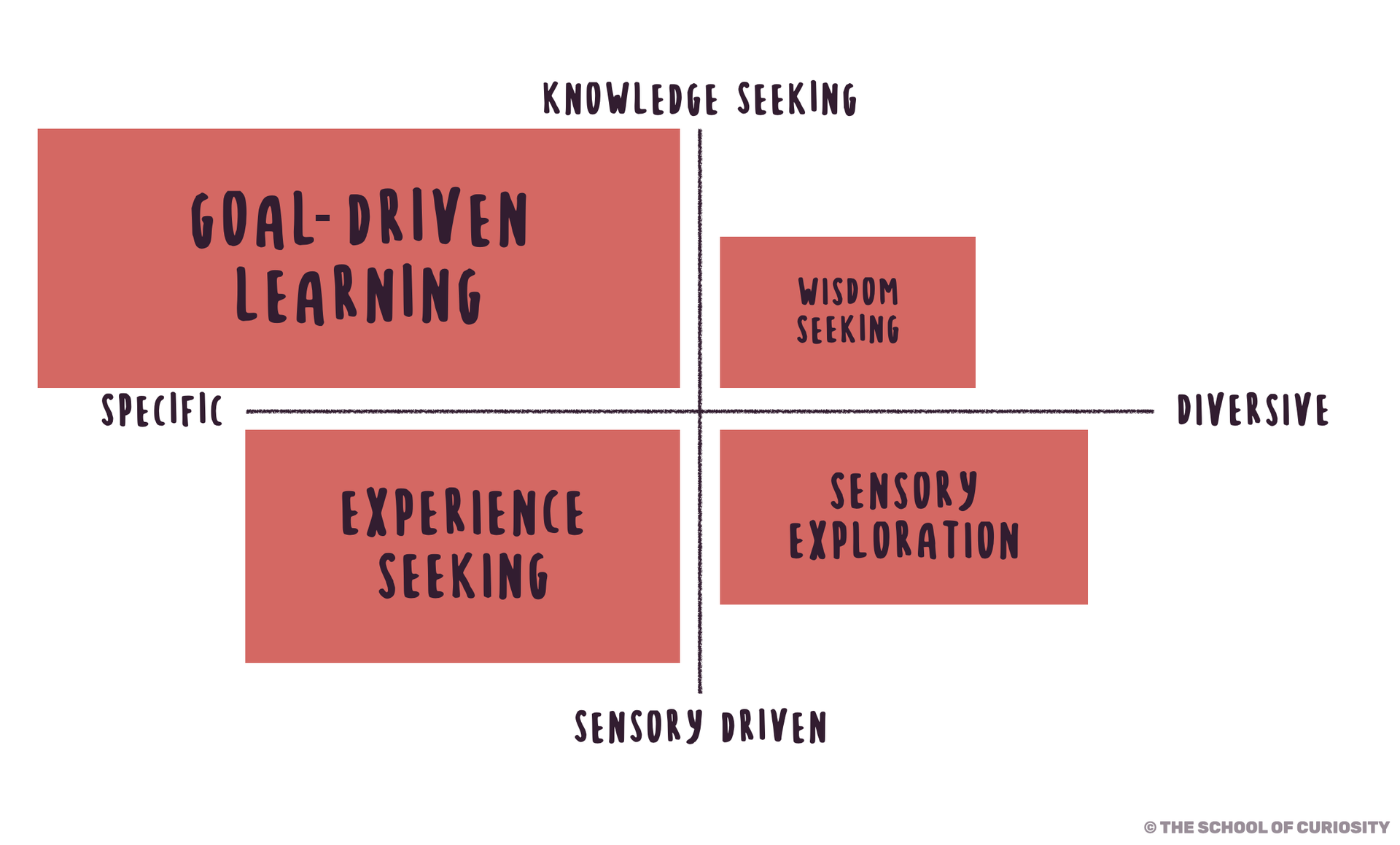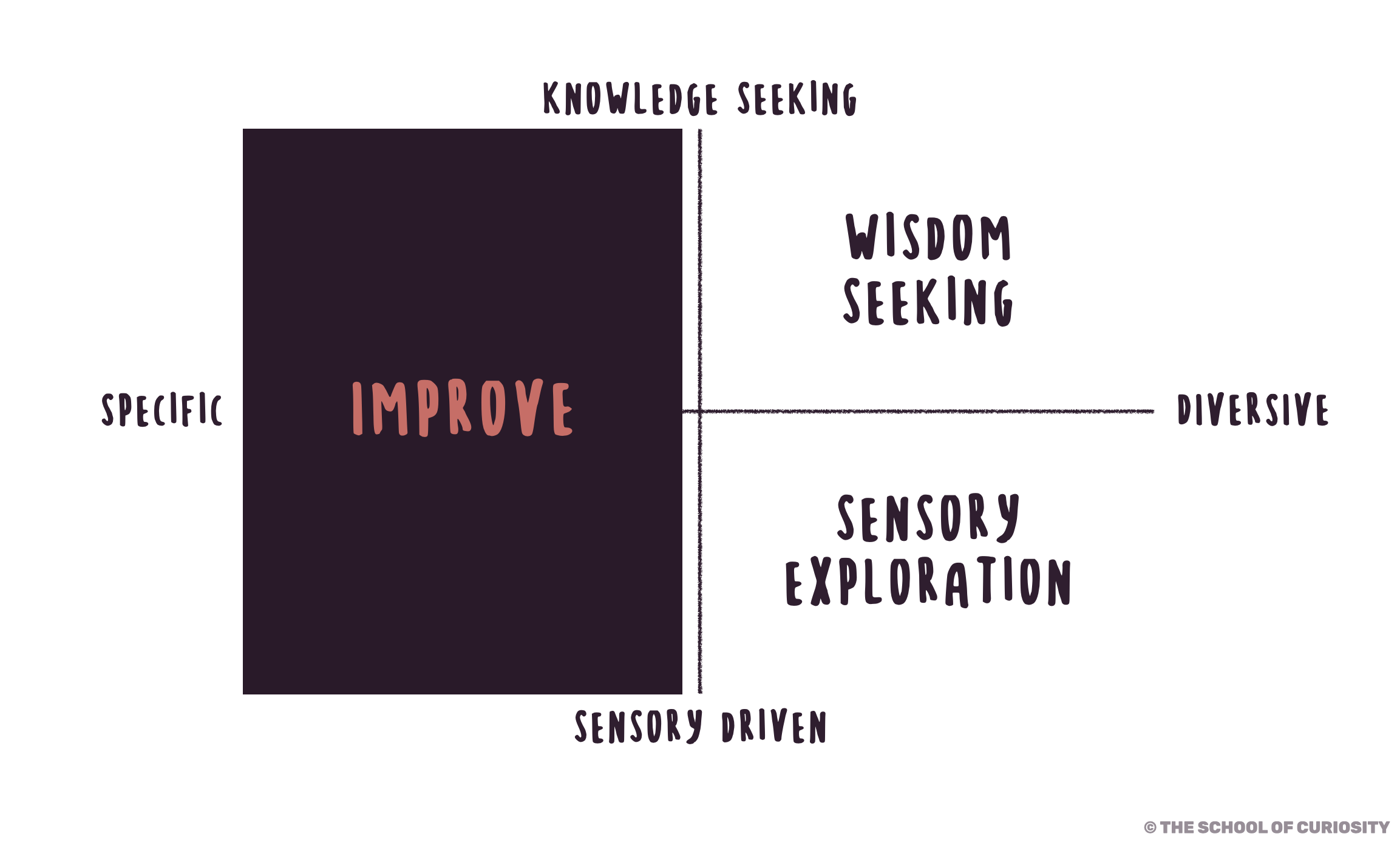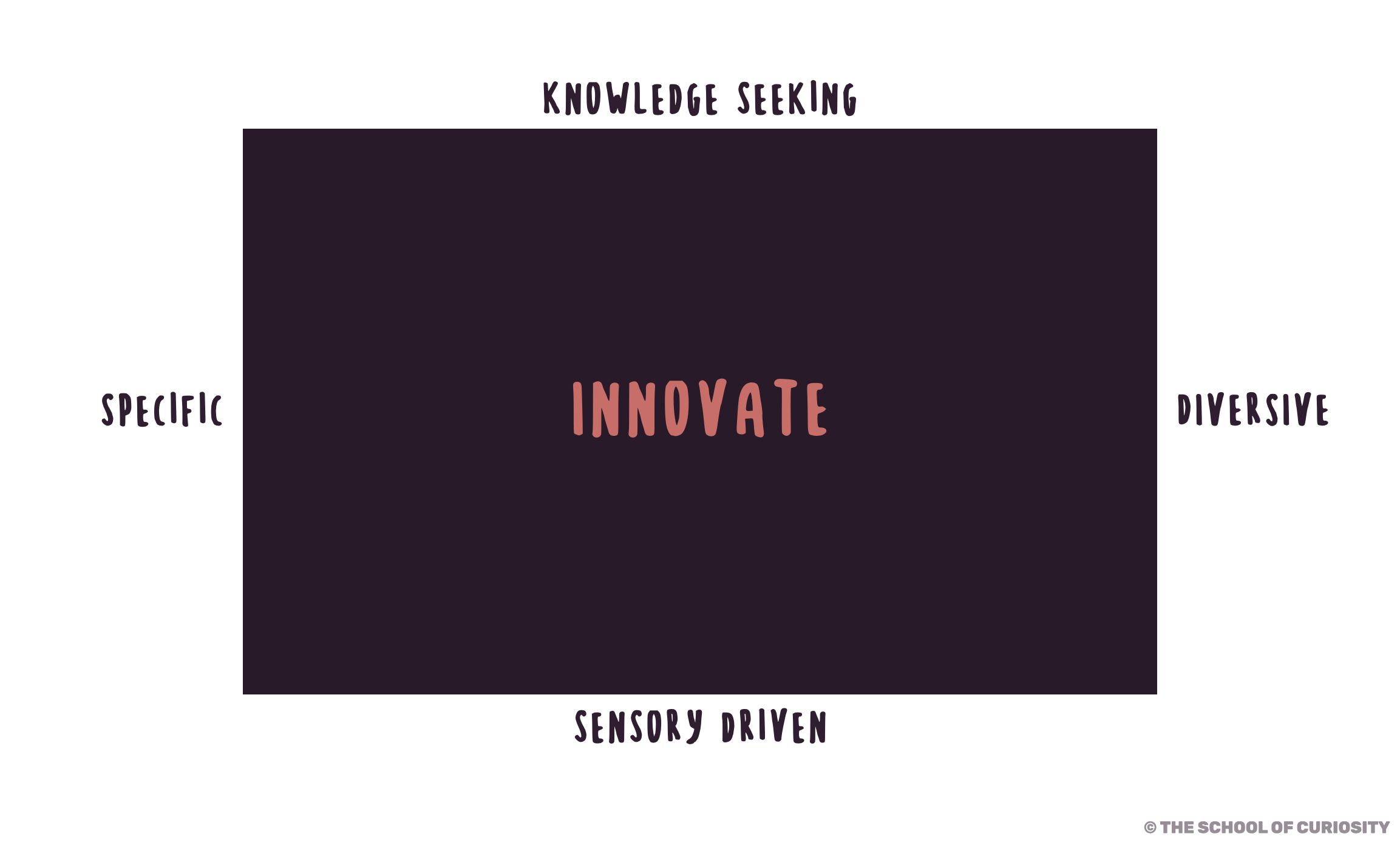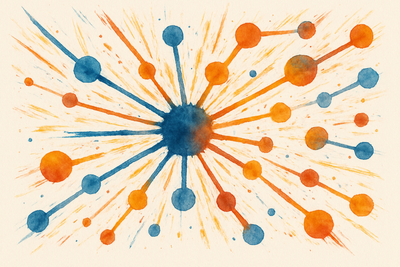Learning in Chains: How Goal-driven Education Limits Curiosity

This article builds further upon my explorations on curiosity, as written down here.
The Western Obsession with Goals
In Western societies, such as the US or parts of Europe, the notion of setting goals and diligently pursuing them has deeply permeated our approach to learning and consequently shaped the structure of our educational systems. This belief underscores the fundamental framework of our schools, where subjects are neatly compartmentalized (mathematics, geography, biology, chemistry), each tailored towards specific outcomes.
We tend to favor a structured approach to learning, one where the attainment of clearly defined objectives serves as a benchmark for success. This love for precision has led us to adopt a binary perspective, where success is often distilled into right or wrong, 1 or 0. Consequently, our educational system has evolved to prioritize tangible, measurable outcomes, driving us towards a culture of goal-driven learning.
Higher education further reinforces this paradigm through its proliferation of specialized degrees and programs, reinforcing the notion that success is synonymous with goal-oriented achievement. Narratives like the American Dream perpetuate this mentality, championing the belief that with unwavering dedication and focus, any aspiration can be realized. This mindset has transcended geographical boundaries, spreading its influence globally, thanks to the forces of globalization.
A different perspective: Eastern philosophies on learning
In contrast, Eastern cultures, influenced by philosophies such as Confucianism or Buddhism, traditionally offer a divergent perspective on learning. Here, the emphasis extends beyond mere attainment of objectives to encompass a broader pursuit of connectedness, both within oneself and with the world around us. Learning is viewed as an ongoing journey of self-discovery and enlightenment, where personal growth holds equal significance to external accomplishments.
In essence, the Eastern philosophy echoed by Socrates' timeless quote, "Education is the kindling of a flame, not the filling of a vessel," encapsulates a profound understanding of the true essence of learning. Rather than viewing education as a passive process of filling a container with information, it invites us to ignite the spark of curiosity and passion within ourselves, nurturing a flame that illuminates the path of lifelong learning and self-discovery.
Curiosity within a framework
Similarly, in the Western approach to sensory curiosity, we tend to prefer having control. While we are curious and seek to trigger our senses, we often prefer to do so within a structured framework. Whether planning vacations, selecting music playlists for festivals, or choosing restaurants, we seek to control our sensory experiences.
If you would plot this on the framework to show the preferred types of curiosity. This is what you would get:

As you can see the specific curiosity types are preferred, with goal-driven learning on top. We live in a society where we are so driven by control and ‘the next step’ that we highly prefer specific curiosity, since it feels like the likeliest way to growth. And in our jobs goal-driven learning is almost always the go-to (just check out those diplomas being thrown around on LinkedIn every day).

The least popular are the diversive types of curiosity. And that’s a shame. Especially since it’s crucial to recognize the importance of all forms of curiosity. While goal-driven learning and experience-seeking may improve ourselves and our work, it's the divergent forms of curiosity that truly enable innovation and transformation. Embracing curiosity in all its forms opens doors to new possibilities, fostering creativity and driving progress in ways that structured learning alone cannot achieve.

The Western focus on goal-driven learning has led to significant progress, but it can also confine us to predefined paths. In contrast, Eastern philosophies emphasize learning as an ongoing journey of self-discovery. To unlock true innovation and personal growth, we must balance structured learning with open-ended curiosity, embracing the unknown to foster creativity and broader perspectives.
Some questions for reflection
- How has goal-driven learning shaped your personal and professional development?
- In what ways do you embrace diversive curiosity? And how could you incorporate more of it?
- Are there aspects of your education or career where a more open-ended, exploratory approach could be beneficial?





